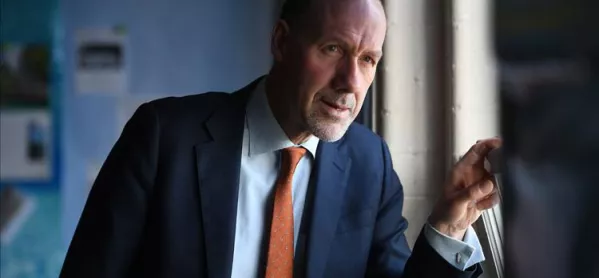- Home
- ‘Teachers should encourage students to speak up - and remember to do so themselves’
‘Teachers should encourage students to speak up - and remember to do so themselves’

Sometime back in the mid-1990s, when I was head of English in York, one of my pupils made an inspired request. “Could we set up a debating society,” he asked, “but not call it a debating society?”
His theory was that if we got the name wrong, then we’d get the wrong people attending; that the pupils who might benefit the most would be the ones least likely to come along. He wanted this to be a society where any pupil came to debate a topical issue they felt strongly about, not a forum for the word-rich to show off their verbal pyrotechnics.
So his tiny suggestion resulted in an unexpected name. The Huntington School debating society would be known, simply, as Rowing Club.
This amused both of us. It meant that those signs around school advertising its lunchtime gatherings, on noticeboards and corridor displays, were appealingly ambiguous. Was this a forum for people of aquatic sporting interest - would-be rowers on the River Ouse - or (as we intended) simply a place where you could turn up and have an almighty argument?
One lunchtime a week, in a small room off the main corridor, a mix of pupils would come along to enjoy a feisty but controlled debate about the big issues of the day - whether Britain’s nuclear deterrent should be scrapped, whether school uniform should be banned, and who was better, Oasis or Blur?
‘Debating should be an entitlement for every child’
And there began my long-standing interest in competitive debating. Since then, in my various roles as deputy, headteacher and now as ASCL’s general secretary, I’ve enjoyed presiding over similar roomfuls of pupils, coaching them as debaters, and essentially initiating them as first-hand users of language.
I listen to them, I give them feedback, I occasionally take some of them to tournaments where they compete against other schools. And over the years, I’ve sent a few outstanding speakers for trials for the England debating team. And - like the 20 or so I now work with every month at a school in Leicester - they come from a mix of backgrounds.
A parliamentarian who said to me this week, “It’s just a self-selecting group of middle-class kids staying behind after school,” couldn’t be more wrong.
Debating is at the heart of the way our democracy works, how our laws are formed, our justice enacted, our values enforced. It should be an entitlement of every child in every school of every background.
I was thinking of this on Tuesday because I was a guest in the Houses of Parliament at an event to promote oracy. Emma Hardy MP - former primary teacher and now an indefatigable Labour MP - is building a coalition of campaigners who support her view that high-quality speaking and listening should underpin a good education.
I was there as one of the great and the good who agree with her. More tellingly, she had invited into that packed second-floor room, a group of children who made the case for the liberating power of oracy far more strongly than any of the adults.
‘Oracy liberates young people’
In particular, one teenage girl, her notes gripped tightly in a shaking hand, stood and told us how a combination of teachers and social workers refused to let her be defined by her background. They had encouraged her to harness her opinions through public speaking, to formulate her ideas, organise them, and then express them in public. She choked up when she told us that she now had the confidence to know she would be heading proudly to college. Oracy was part of her liberation, of learning who she could be.
Someone in the audience asked whether, if oracy was so important, Ofsted should be required to report on it in its inspections. The answer, of course, is no. If a rich verbal environment is important within and around our classrooms, then we don’t want schools and colleges thinking they have to do it because inspectors mandate it. It should be there because it should be there.
And at the moment - according to many of those who work with schools to support public speaking, debating, visiting speakers - it’s the schools in the most challenging circumstances where we are least likely to find powerful oracy in action. This is where extra-curricular opportunities for oracy are likely to be squeezed out by the demands of the accountability system to fill those Attainment 8 buckets.
But I sense a growing feeling that it’s time for the teaching profession to reclaim what’s important - within and around our classrooms, to reinstate what we believe every child should know and be able to do. This week’s parliamentary meeting around oracy was one small but important demonstration of a growing movement.
Just like that teenager who spoke so powerfully, we need to regain our confidence, to find our voice, to argue for - and then enact - what really matters in education.
Geoff Barton is general secretary of the Association of School and College Leaders. He tweets @RealGeoffBarton
Keep reading for just £1 per month
You've reached your limit of free articles this month. Subscribe for £1 per month for three months and get:
- Unlimited access to all Tes magazine content
- Exclusive subscriber-only stories
- Award-winning email newsletters



